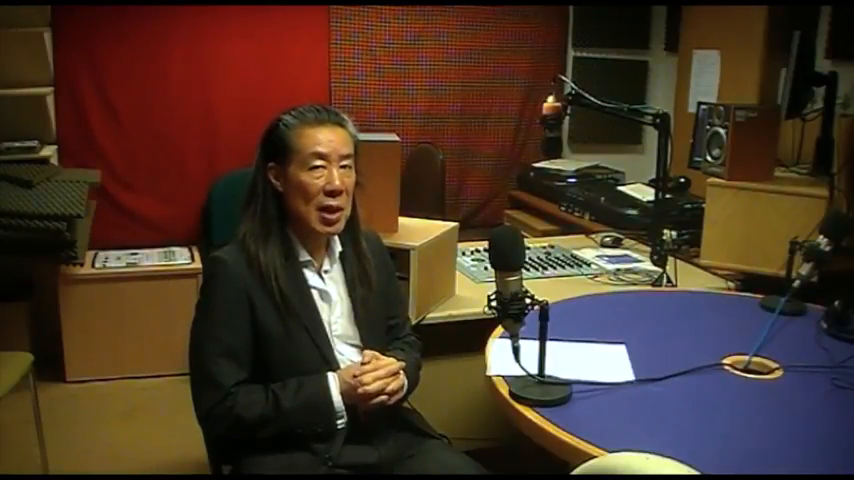Stephen Chan: As we speak today, the Chinese authorities are cracking up a very very large-scale and what promises to be an incessant security drive in Xinjian Province in northwest China against what the Chinese government calls Islamic extremists. What in fact the Chinese government means is it’s launching a drive against dissent from the Uighur people who’ve lived there for centuries. Who although being part of the Chinese state for several hundreds of years share of all kinds of ethnic and other characteristics with surrounding countries such as Uzbekistan. Their language is a Turkic language and they use a Persian crossover Arabic script. They are Islamic but what is really at stake here is not so much an Islamic problem, although there are elements of that. What is going on is a separatist problem, which to a very large extent the Chinese government through its lack of sympathy for the processes of engagement have helped to cause in the first instance.
Insofar as we’re looking at an Islamic problem, then what you have by way of Islam in China, as in all of Southeast Asia, is something which spread very gradually. In terms of outlying Southeast Asian nations such as Malaysia and Indonesia, you’re probably looking at something which dates only from the 14th to the 15th century. And it was part of a global competition for trade involving Islamic traders and merchants on the one hand and Portuguese traders and merchants on the other. In the first instance, these maritime Islamic traders were probably more Sufi than Sunni. Their bridgeheads were followed by Sunni missionaries. But in the first instance what you had was the problem of confronting, accommodating, and mixing with the local cultures that had long, urban forms of organization and temple organization of their own.
The same thing happened in China. You had a maritime expansion into China as early as the 7th century—again by Sufi traders. And they managed to set up shop in what is now Guangzhou, Canton. A bridgehead there, a discrete community there. But it was the overland Silk Road influence of traders and then of missionaries coming into China via Xinjian Province that really laid the ground roots for the confessional affiliations of today’s Uighur people.
The Uighurs are of mixed origin themselves. They’re certainly not Han Chinese. Part Turkic, part Russian, part Transcaucasian, part Mongolian, they only formed themselves into a national and coherent consciousness in the last three or four hundred years. But that consciousness, having taken hold, has been reinforced by persecution of them as a people. And the Chinese authorities in immediately conflating unrest against Chinese rule with Islamic unrest have cracked down on the Uighur community in the name of a fight against terrorism.
Now in fact there may, because of this, be terrorism in the future. Such terrorism as has happened in the past has been relatively minor. Isolated attacks, knife attacks, no mass atrocities of the sort that has been seen in North America and particularly in recent days in Europe. It’s been low-level and really expresses opportunistic political dissatisfaction that spills over into violence with the nearest weapon at hand. So nothing planned by way of weaponry of mass destruction, or even of minor destruction, beyond individual and opportunistic killings.
Mobilizing the armed forces, the security forces, putting into place all kinds of surveillance techniques, utilizing drones, registering all vehicles, satellite tracking all vehicles, banning headscarves in public, banning beards, all of these suppressions of elements of the outward affiliation to Islam only increases dissatisfaction by virtue of imposing a police state of high technological capacity and intensity in the 21st century. So if there was not an Islamic problem in the past there soon will be, as dissatisfied Uighurs go out to places like Iraq and Syria to take training of a military nature. And the response of Islamic State to the Chinese mobilization was to declare its affiliation with the Uighur rebels.
So the battle lines are now being drawn, whereas negotiations at an earlier stage could probably have prevented them from being drawn. What is at stake here in Xinjiang Province is very very much a threat to a traditional way of life and a traditional identity, even though its coherence has been relatively recent. And this is being caused in the chiefest instance by mass migration of Han Chinese into Xinjiang Province. It’s a technique that the Chinese have employed in Tibet, for instance. So that the local population at some key stage in the future will be overwhelmed and turned into a minority within their own traditional habitat. The coming of Han Chinese with their customs, their affiliations to certain political and cultural (as it were) items of faith and loyalty, seem to threaten local forms of cooperation, local forms of organization, and certainly local belief systems.
It’s not that there is this mass migration. It’s also the lack of sympathy of the new migrants, and certainly the lack of sympathy of the Chinese authorities toward some proper kind of multiculturalism. Such multiculturalism as there is is expressed very very much in a celebration of festivals. Things that are colorful, things that are essentially harmless. In terms of autonomies, in terms of autonomies of belief systems, cultural as well as religious, this is where the line is drawn and this is where dissatisfaction begins. So that Islam in China, certainly as far as the Uighur population in the northwestern Xinjiang Province is concerned, is in fact a project under construction.
Further Reference
Religion and World Politics course information
